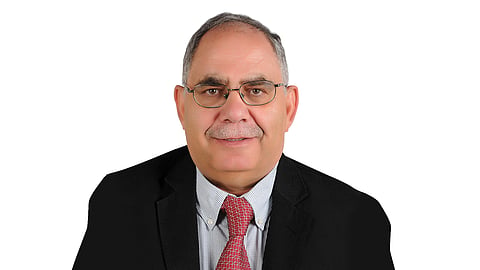AUS Prof’s Research on Smart Cities, IoT-based Platforms Contribute to UNSDGs
American University of Sharjah (AUS) professor and researcher Dr Abdul-Rahman Al-Ali has published his research on smart cities applications and employing the Internet of Things (IoT), cyber-physical systems and artificial intelligence (AI) based platforms.
Dr Al-Ali is a professor in the AUS Department of Computer Science and Engineering.
The significance of Dr Al-Ali’s research lies in the potential benefits it can bring to the community in everyday life activities, including monitoring of smart home appliances, efficient energy usage, smart transportation solutions and advancements in smart farming techniques.
Dr Al-Ali and his team have developed innovative solutions for smart home energy management systems through their research work using an IoT and Big Data Analytics approach.
Their groundbreaking research sheds light on how homeowners and utility service providers can optimize their electricity consumption by efficiently managing smart home appliances.
The team's research has significant implications in achieving the United Nations Sustainable Development Goals (UNSDGs), particularly Goal 7: Affordable and Clean Energy and Goal 11: Sustainable Cities and Communities.
The findings of this research have been published in top-tier academic platforms.
The first paper, "Smart Home Energy Management System Using an IoT and Big Data Analytics Approach," presented a comprehensive approach to energy management and earned the best paper award from the prestigious journal Institute of Electrical and Electronics Engineers (IEEE) Transactions on Consumer Electronics.
Their second paper, "Deep Learning Approach for Smart Home Appliances Monitoring and Classification," highlighted a deep learning-based approach that helps in monitoring and classifying smart home appliances, leading to more efficient energy consumption management.
This paper was presented at the IEEE International Conference on Consumer Electronics (ICCE).
"My future plans for this research are to work on more smart cities applications such as smart farming and COP28-related applications. These kinds of projects satisfy some of the UN 17 SDGs, namely Goal 11: Sustainable Cities and Communities, which aligns with the COP28, which is under the UN Framework Convention on Climate Change," said Dr Al-Ali.
One of his recent projects that satisfies SDG 8: Promote Sustained, Inclusive and Sustainable Economic Growth, Full and Productive Employment and Decent Work for All. The work focuses on designing a smart cane that can help visually impaired people.
The project was co-authored with faculty from his department and undergraduate students. Dr Al-Ali's team created an IoT-based mobile sensor unit that can be attached to an off-the-shelf cane, providing independent movement for visually impaired people.
As the user is walking, the unit collects information about the user and the surroundings and alerts the user about detected obstacles. Additionally, in case of emergencies such as a fall, the unit alerts the user and their emergency contact.
A mobile application was developed to track the cane user via Google Maps as an additional safety measure.
Dr Al-Ali added: “In the future, I aim to expand the applications of my research to include areas such as smart health monitoring systems, energy management systems for smart buildings, air pollution monitoring systems and smart factory solutions.
"This will allow for broader implementation of the research findings and contribute to the development of various smart technologies in different sectors.”
Read More:


